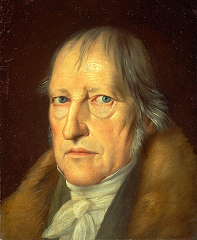The Postmodern Condition
On Bullshit is a serious philosophy book. At first glance, it might look offensive or flippant, but actually it’s a rigorous philosophical analysis of an important concept which, unfortunately, just doesn’t have any other name. Harry Frankfurt’s careful analysis argues that ‘bullshit’ isn’t, like lying, a kind of discourse that intentionally opposes the truth, but rather a kind of discourse that just disregards the truth. A casual reader might wonder why a philosopher would bother to work so hard to discover something so seemingly obvious. But anybody who’s spent a lot of time in the postmodern world of the Sokal Hoax might appreciate Frankfurt’s book. As he puts it, “one of the salient features of our culture is that there’s so much bullshit.”
In fact, Frankfurt almost seems to have proved that postmodern philosophy is bullshit, by definition. To see how the argument might work, we might look at, for example, the postmodernism of Richard Rorty. Rorty, whom Harold Bloom called “the most interesting philosopher in the world,” is also “arguably the most influential contemporary philosopher writing in English,” and “one of the world’s most influential living thinkers.” According to Rorty:
We need to think of reason not as a truth-tracking faculty but as a social practice. The notion of “accurate representation” is simply an automatic and empty compliment which we pay to those beliefs which are successful in helping us to do what we want to do. There is no enclosing wall called “the Real.” There is nothing outside language to which language attempts to become adequate. The claim that we are responsible to reality is as hopeless as the idea that true sentences correspond to reality.…we have no responsibilities except to fellow-players of what Sellars and Brandom call the game of giving and asking for reasons. We understand knowledge when we understand the social justification of belief, and thus have no need to view it as accuracy of representation.
So, maybe we can make short work of postmodernism by proving that the fact that it’s bullshit simply follows logically from the definitions of the terms involved. If postmodernism is a kind of discourse that pays little or no regard to the truth, and that’s the very definition of the word ‘bullshit,’ then postmodernism is bullshit, by definition.
That’s a pretty neat move. But, unfortunately, it doesn’t settle the matter. Those who already feel that postmodernism is a crock will agree, of course. But postmodern philosophers will either deny that they disregard the truth, or else complain that if they do, then so does everybody else, and nothing can be done about it. They’ll object that such a naive notion of “the Truth” presupposes a vulgar realism that can’t survive philosophical examination. Postmodernists see this realist notion of truth (truth as a conformity or correspondence between claims, beliefs, ideas or representations, on the one hand, and ready-made, mind-independent things in themselves, on the other) as “hopeless.” For this and other reasons, postmodernists like Rorty feel compelled to “see truth, as in James’s phrase, as ‘what it is better for us to believe’ rather than as ‘the accurate representation of reality’.” He says:
We cannot find a skyhook which lifts us out of mere coherence—mere agreement—to something like ‘correspondence with reality as it is in itself.’ …Pragmatists would like to replace the desire for objectivity—the desire to be in touch with a reality which is more than some community with which we identify ourselves—with the desire for solidarity with that community.
Some might imagine that the best cure for postmodern silliness is the same as for other kinds of flaky thinking: call the Bullshit Squad, i.e., the Philosophy department, whose job it is to untangle logical fallacies and understand things like truth, reason, evidence, justification and knowledge. Unfortunately, postmodernists didn’t get that way on account of ignoring the teachings of the Philosophy department, but on account of sincerely imbibing them. The terrible truth is that postmodernism is what happens when honest, intelligent people read the canonical philosophers and believe them.
This isn’t to say that the cure for postmodernism doesn’t lie in the hands of philosophy. It does. But the blame lies there too. To halt the postmodern plague, the doctors need to be cured first. It’s like one of those incredibly hardy hospital strains. The roots of postmodernism run so deep in philosophy that the condition can only be reversed by a radical surgery that cuts into the very heart of the canon to expose a shocking amount of diseased tissue.
Committed to saving the patient, I’ll argue that the way to proceed is to combine abduction with naive realism. The tricky part of the operation, as everybody knows, concerns the threat of radical skepticism. But, of course, being the key to an effective cure, that’s the best part.
First Naiveté
J. L. Austin once said that in philosophy it’s usually all over by the bottom of page one. Something like this seems to hold also for philosophy as an academic subject, in that it’s usually all over by the end of Philosophy 101, when every fresh crop of students must learn from the canonical texts that what you perceive when you eat your lunch aren’t ready-made things in themselves existing independently of the mind, but, rather, mere representations of the mind, and to think otherwise, though it may seem commonsensical, is naive. In other words, once the students see what’s wrong with “naive realism,” epistemology can get rolling. Over the gates of history’s first Academy was written, ‘Let No Man Ignorant of Geometry Enter.’ At the gates of Hell it’s, ‘Abandon Hope All Ye Who Enter Here.’ The Philosophy department could post a hybrid: ‘Abandon Naive Realism All Ye Who Enter Here.’
This is an exaggeration, since it ignores moral and political philosophy, but in metaphysics and epistemology (the inner core of philosophy), it’s been more or less the case for centuries. In 1989 John Heil published a survey in which he noted that “anti-realist tracts overwhelm both in number and sheer density a steady but comparatively modest realist output.” He noted that “Australia, isolated and out of the loop evolutionarily, continues as a stronghold of realists and marsupials.” One of the latest books from Oxford University Press still assures us of “our epistemological situation in our state of philosophical enlightenment, where we have corrected our ordinary, naive view, and accepted that external items are not accessible to sense-perception.”
Of course, things are always worse in France, where philosophy seems to have gone all but raving mad. But in America too we scratch our heads since Reading McDowell, and Hilary Putnam, after decades of disparaging realism, nominally calls for the troops to retreat through a jungle of their own making, hacking their way back, if possible, to a “second naiveté.” Putnam almost seems to credit William James with the discovery that two people on the Harvard campus can perceive the same building—a feat no doubt easier to perform the farther it occurs from campus. To this day, the epistemology collection of your local bookstore is unlikely to offer more than a few naifs awash in a sea of sophisticated disparagers of the ordinary realism Hume and Berkeley attributed to “the vulgar” (a category they opposed to “the philosophers”). The modern philosophy canon is the anti-realist canon; if twenty of the world’s most popular epistemologists since Berkeley were made into baseball cards, you might not find a good champion of the vulgar in the pack.
True, there will always be many working in the moral and political sub-specialties of philosophy who’ll wonder if a determined attack on anything they’d think of as anti-realism isn’t beating a dead horse, since nobody they eat lunch with seems to be talking about it. But these might be compared to the eighteenth-century philosophes who thought religion was through. Would that it were a dead horse, but as things stand today, it looks doubtful whether most of the world will ever get over it. This horse could use a lot more beating. Besides, even if it were to attain dead horse status some time in the future, as Charles Taylor observed, “in philosophy dead horses have a tendency to ride again.” Even to stampede whole continents. Entrenched in hoary, canonical texts, this horse will never die. Like Christianity, Judaism, Marxism, and Islam, it will live forever. Like oak root fungus, it can only be kept in check.
But there’s another reason those off in the fields of moral and political philosophy need to care about postmodern epistemology, and that’s because it has an unavoidable effect on their own specialties. At the very least it’s indispensable to understand how it could happen that Richard Rorty could be “one of the world’s most influential living thinkers” while saying things like
I do not think there are any plain moral facts out there in the world, nor any truths independent of language, nor any neutral ground on which to stand and argue that either torture or kindness are preferable to the other.
Of course, another problem we will always suffer from, is that, to the extent any philosophy book truly succeeds in achieving what philosophy ought to achieve, which is “common sense methodized and perfected,” then, to that extent, such a commonsensical book isn’t saying anything too terribly shocking or disastrous. And that means it’s unlikely to become a major canonical text, while the works of Hume and Kant, no less than Das Kapital and Mein Kampf, will indefinitely enjoy their sinecure as required reading for each new generation of freshly-scrubbed young minds.
At this point in history, things could go either way. On the one hand, a skeptical anti-realism, still more or less in the drivers’ seat, might chronically dominate philosophy indefinitely, until the word "philosophy" eventually comes to denote some kind of strained intellectual religion incompatible with common sense. In that case, philosophy, once naively imagined to serve as a pesticide against humbug, might instead turn into fodder for a new dark age of especially hardy pests.
Or, things could go the other way, and a vulgar naiveté regain the upper hand, with marginalized arguments for common sense winning back enough of the limelight from Hume and Kant to retake the ivory tower. It’s probably too late for France and Germany, but what needs to happen in the salvageable world is for philosophy to plainly admit that this parting of the ways between philosophy and common sense wasn’t just a small technical error, but a momentous blunder and a fateful wrong turn. What philosophy owes to the vulgar isn’t some belated and begrudging concessions, but a sincere and contrite apology and a promise to make amends for centuries of preposterous slander, libel, and defamation.
At the very least, it should be admitted to young philosophy students that they have a choice in the matter, and will not necessarily feel like atheists majoring in Divinity, should they refuse to abjure their vulgar common sense.
Of course, students must still be taught the canonical texts. There’s no getting around that. Hume is considered more important and sophisticated than Reid. Kant and Hegel are considered more important and sophisticated than Austin. Madmen and villains are often considered more important and sophisticated than sensible, harmless people. But this means that in order to cling to their common sense in the teeth of such a formidable array as they must face, students have to hold out like stubborn teetotalers in a crowded saloon. We can only wonder if more than a minority of them will ever have the strength to stand their naive ground against the Greatest Minds in History. This book was written for these students, in hopes it may give them courage.
Above all else, right or wrong, at least I want to make this debate as plain and easy to understand as I possibly can. That’s why I’ve tried to avoid the academic style, riddled with ambiguous jargon. That’s a style tailor-made to talk yourself into preposterous notions you’d see right through immediately, if, instead, they were stated plainly. Besides, the subject is tricky enough without being made even more obscure by unnecessary cant.
I’ve also chosen to use the dialogue form, because a fellow student, Mark Engel, once said he thought all philosophy would be clearer if written in dialogue form, and I thought he had a point. My own suggestion for curing errors in philosophy was to require at least one concrete example per abstract claim, and so I’ve also tried to remember to take my own advice.
Non-professionals may find chapter one pedantic, and realists may find chapter three tiresome from their point of view. They should skip forward to the next chapter. One person’s overkill is another’s “not proved,” and the first obligation of a philosophical argument is to satisfy its enemies, even if this means trying the patience of its friends. It’s fun to preach to the choir, but the point is to save the damned.
Beat the Demon
The last chapter hopefully won’t bore anybody. That’s because it takes on the toughest monsters in philosophy’s dungeon, including Descartes’s Demon, the Problem of the Criterion, Hume’s Riddle, and the Disembodied Brain in the Vat. (They’re even scarier than they sound.) In philosophy this is called the problem of skepticism.
In his book Challenging Postmodernism: Philosophy and the Politics of Truth, David Detmer lamented:
A position that I find to be very frequently defended with explicit argumentation in popular culture is anti-realism, meaning either the doctrine that there is no such thing as “reality” (that is, there is no one way that “things are,” or that “the world is”), or the more modest view that even if there is some way that “reality” or the world is, we cannot possibly know what this way is. The former thesis I will call “ontological anti-realism”; the latter I will term “epistemological anti-realism.”
The latter position, which Detmer proposed to call “epistemological anti-realism,” is usually, in the Philosophy department, called external-world skepticism. Or, more often, just plain skepticism for short. And, yet, it’s easy to sympathize with Detmer’s idiosyncratic label, because skepticism and anti-realism are so similar that even famous philosophers have a hard time telling them apart. And no wonder. To over-simplify, skepticism is basically the claim that nothing about the world outside the mind can be known, and anti-realism is basically the claim that no things actually existing outside the mind can be seen.
It would be vain to try to refute anti-realism without also refuting skepticism. This is because, while anti-realism wants to prove that houses and trees don’t actually exist apart from the mind as independent things in themselves, skepticism, as we’ll see, involves the claim that it’s no less probable a possibility that (for some reason) they don’t. So anybody who wants to argue that it’s at least probable (that the very houses and trees we see and feel do actually exist as mind-independent things in themselves), must refute both anti-realism and skepticism. For this and other reasons, there’s no dealing with one of these problems without dealing with the other at the same time.
Basically, the skeptic points out that, for all you know, you could just as well be living in a jelly pod in the world of "The Matrix," or else be a disembodied brain floating in a vat of fluid, hooked up to the electrodes of a mad scientist’s supercomputer which feeds you all your experiences. Maybe your memories are all false, implanted only a moment ago. Or perhaps your whole life is merely a dream. Or maybe, as Descartes once suggested, you’re just a hapless spirit deluded by an evil demon who gets his jollies by fooling you into thinking this crazy world really exists outside your addled mind. The philosophical skeptic says since it cannot be known that this isn’t the case, therefore, nothing about an external world outside the mind can be known.
Now, while it happens, sometimes, that anti-realism drives people to skepticism, actually, it usually goes the other way. As Rorty once explained, “people become Pragmatists for the same reason they become idealists or verificationists: they hope to frustrate the skeptic.” If we can know nothing about any mind-independent, external world, then, if we say the world is inside the mind, maybe we can know about it! So, historically, it’s been a dread of the demon that scared philosophers off the pedestrian realism of less enlightened folk. As David Armstrong put it:
Phenomenalism is parasitic upon scepticism. The Phenomenalist raises the sceptical difficulties, and then appears as the heaven-sent deliverer from them.
Obviously, this kind of radical, philosophical, epistemological skepticism is not to be confused with what ordinary people call “a healthy skepticism.” This skepticism isn’t the healthy kind.
But, the trouble is, we need to admit that maybe it should give us pause, if our favorite epistemology can’t withstand this skeptical challenge. In fact, that’s what makes skepticism a kind of philosophical test. So, while skepticism is a scourge, it’s also a goad. Maybe we should even admit that, without the threat of radical skepticism, philosophy might be a stunted thing, like an economy without the pressure of free competition. But, on a darker note, we need to remember Rome, and see that history suggests a civilization which can’t muster the wherewithal to answer a Pyrrhonist challenge may be a civilization at risk.
Unfortunately, most philosophers shy away from a serious confrontation with skepticism. As Anthony Rudd noticed:
Strawson thinks we can properly respond to the skeptic, not with arguments but with a “Humean shrug.” Rorty recommends that we should turn away from the tedious old conundrum about “the external world,” and Davidson largely, though with some reservations, concurs with him; we shouldn’t try to answer the skeptic, but simply tell him “to get lost.” McDowell also thinks that we shouldn’t “answer skeptical questions” but “ignore” them, though he does add that we need to do hard work to show “how it might be intellectually respectable” to do so.
Sadly, it’s rare for a philosopher to really take the skeptical bull by the horns. Instead, the typical response is a more or less facile dismissal. It usually seems like sour grapes, because usually it is. As Colin Howson rightly observed, “the problem is not solved, or even partially solved, by sanguine remarks.”
Besides, the same epistemologists who avoid mentioning the dreaded demon are still letting him intimidate their every move. While the word skepticism may hardly appear at all in their books, the specter invisibly haunts every page. What they really fear is what Rorty is frank enough to say plainly: “Nothing can refute the skeptic.”
Of course, it’s not enough just to point out that the skeptical anti-realism at the heart of postmodern philosophy flies in the face of common sense, and leave it at that. This rightly fails to impress those who feel that “in a philosophical court the place for common sense is in the dock, or on occasion the witness-box, never the bench.” After all, Copernicus and Einstein went against common sense too. Sometimes common sense turns out, actually, to be wrong. Besides, to think that it’s okay to summarily dismiss postmodernism out of hand, merely on the grounds that it contradicts the conventional wisdom, looks an awful lot like you’re embracing exactly the kind of philosophy you’re pretending to be against.
On the other hand, if common sense is in the dock, maybe it could use some new attorneys. An innocent client should never be pled guilty. Besides, to embrace anti-realism, in a vain attempt to elude skepticism, is merely to climb into the vat and seal the lid. There’s no reason to give up so easily. Where facile dismissals and Kantian revolutions have failed, something a lot more plodding and ordinary can beat the demon.
Only an earnest and searching heart can overcome the postmodern condition, because skepticism, to be beaten, must be faced honestly, and taken seriously. To pretend to ignore or dismiss it without a serious and careful examination is to forfeit the match and subject everything to a cynical and crippling fideism, and it just doesn’t work to fold our cards and accept Hume’s verdict that there’s no alternative other than to base what we believe upon irrational dogmas we accept, despite a complete lack of evidence, in a capricious act of “blind submission.” Too long has reason cowered in Hume’s shadow. Philosophy needs to exorcise this demon-haunted world.














